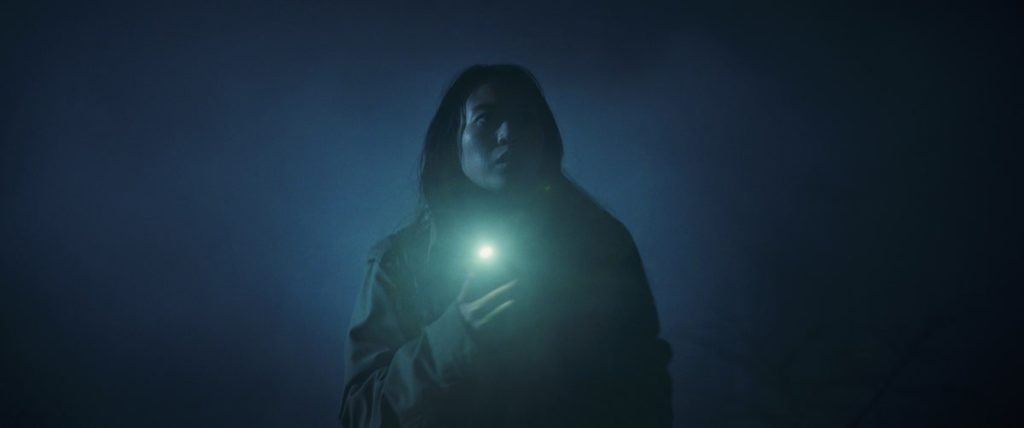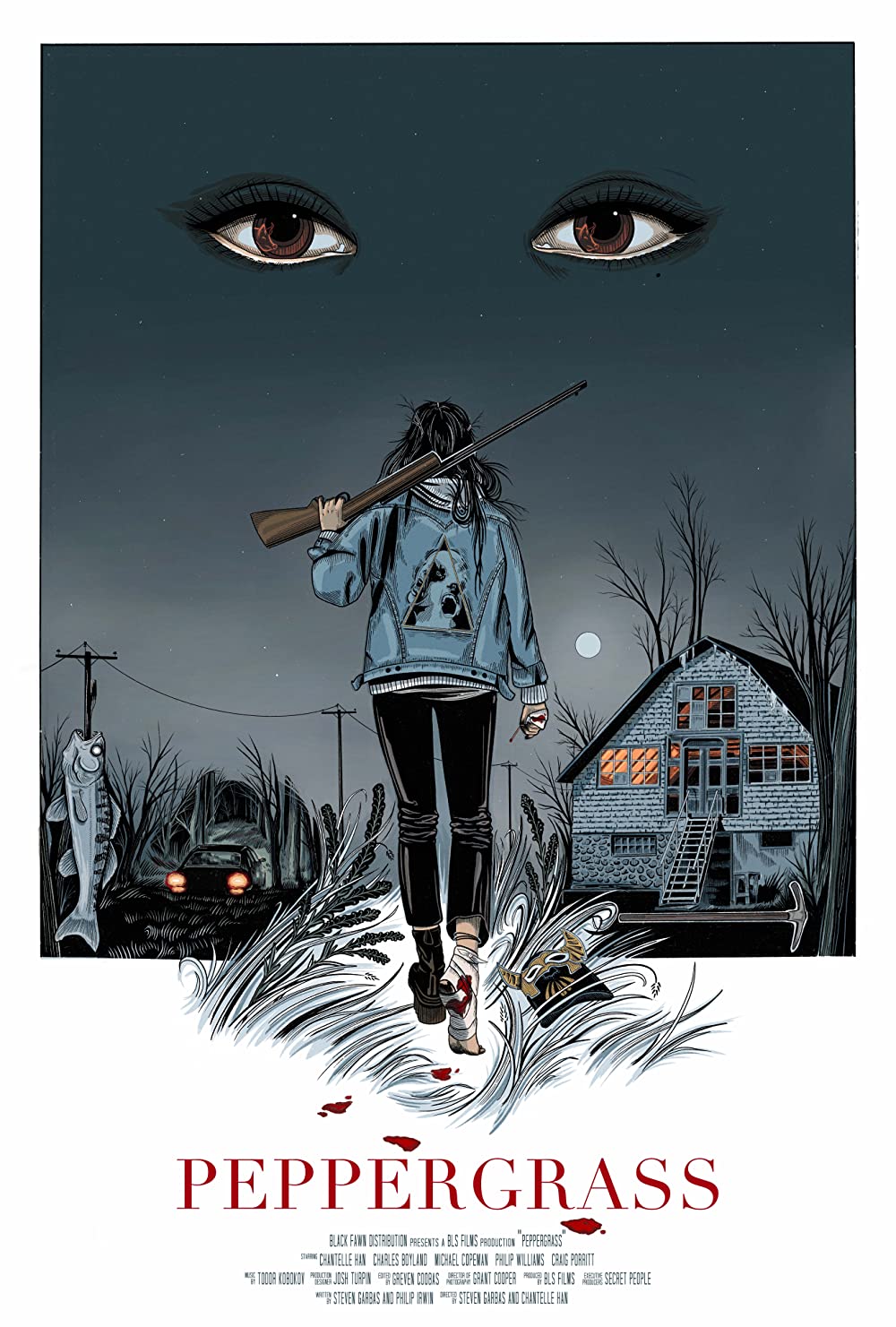
We know that attempted home invasions can often flip on the perpetrators; the likes of Don’t Breathe (2016) and before it, Livide (2011) serve as reminders that, once you’re in someone’s home, you are very definitely at a disadvantage. Peppergrass (2021) sounds for all the world like it could be another one of these films: the press release states that, in the film, ‘a pregnant restaurateur tries to rob a priceless truffle from a reclusive World War 2 veteran’. However, this is no expected horror-heist, not in execution. Peppergrass has a kind of strange, often calm power, which is a strange thing to think or say, given its often brutal moments. But it feels incredibly confident, lining up its little clues, cues and plot points before gliding through them – moving through different horror and thriller elements as it goes. It may be too polished, maybe too calm in what it unfolds for some viewers, but this is certainly an engaging, often quiet – if at times underplayed – kind of chaos.
“Make sure that’s locked,” says one masked person to another, when she arrives outside the bar to find this guy has been laid on the floor, bored asleep, or else an opportunistic napper. Hang on, are they robbing this establishment, or..? The man has the keys and lets the woman inside. It’s not immediately clear, but they’re clearly planning something nefarious; the film may be set during the grim heights of the Covid pandemic, but they aren’t equipped with just regular face masks.
As they talk – or as they squabble, more rightly – it turns out that these two, Morris (Charles Boyland) and Eula (co-director Chantelle Han) both work in the hospitality trade, a trade which has been decimated by the pandemic. Times are tough. In their desperation, they are planning to steal something very specific but potentially lucrative, something which they know about given Eula’s work in her restaurant. Eula’s grandfather, also the original founder of their restaurant, has recently passed away: this has triggered a memory for her of driving out into the middle of nowhere to meet with an old service buddy of his, a Captain Reuben. Reuben farms truffles, keeping pigs specially for the purpose; if they can just find his land, and get a hold of the most expensive white truffles, they can sell it, keep afloat. It’s a crazy idea, but needs must.
Finding Reuben turns into a time-consuming affair; Eula is trying to do this by memory, but as she hasn’t been to see him since she was ten, it’s not easy, and Google Maps is little to no good if you don’t know where you’re looking for. More by luck than hard judgement, the two eventually track down a roadside stall whose proprietor – barking demands that they stay two metres distant – tells them that they are close to Reuben’s land, but to go careful: he won’t let anyone in after dark. They have to park up as close as they can, anyway, and here’s where the film segues into its first horror phase, all spooky light and forest mist. Oh, and a huge, tusked Iberian pig, roaming free. Let’s take a minute here to appreciate the role of pigs in horror; from the use of pigs’ shrieks in The Exorcist (1973) via Evilspeak (1981) to Hannibal (2001), these are mean, scary, clever animals. A large pig can devour all but the largest bones in the human body in around six hours; just saying. The femurs they’ll keep to nibble on a while longer. Morris and Eula are terrified by this creature jumping up at their car, and they should be.
Still, when they find Reuben – or more accurately, when he finds them – things get stranger still. They follow him through the woods, as he seems to require them to do: Eula speaks first, mentioning their connection. But thanks to Morris and his coked-up impulse management issues, the already tense situation quickly escalates, spinning out of control.
We’re moving from classic horror tropes, to something akin to a slasher (in terms of the antagonist) but Peppergrass also adds survivalist horror to its range. What unites all of these is the precarious situation of a stranger in a strange land (Canada or not, it almost doesn’t matter if civilisation is just within your grasp, if you can’t quite get there). The film focuses hard on Eula, in a sober and often character-centred turn of events. This is often aimless, because that’s how people are in these situations; nonetheless, it’s this section of the film which will probably draw its toughest criticism. It’s often largely silent here, too, playing with stillness, quiet and open spaces. Sometimes the trees seem to hem Eula in; sometimes the sense is of a vast, ungovernable wilderness, but neither of these are places to be, at least not like this. What definitely lends itself to the final act is Eula’s growing sense of desperation; we believe she could attempt anything. We also find out more about the film’s title, which is all about the cynicism, duplicity and error which govern the film as a whole.
Peppergrass is a film set against the pandemic in a meaningful way, rather than a film made simply to triumph over its adversity, getting it made no matter what. Its closed businesses, its desperate, often paranoid people; its designation of places according to whether they ‘have the virus’ there or not – these frame the film usefully, begging the question of whose behaviour is really the most destructive here. All in all, this is a thoughtful, capable piece of film, where all of the elements are woven together meaningfully, leading finally to a harsh, darkly witty conclusion.
Peppergrass (2021) will be available on digital platforms from June 16th, 2023.
